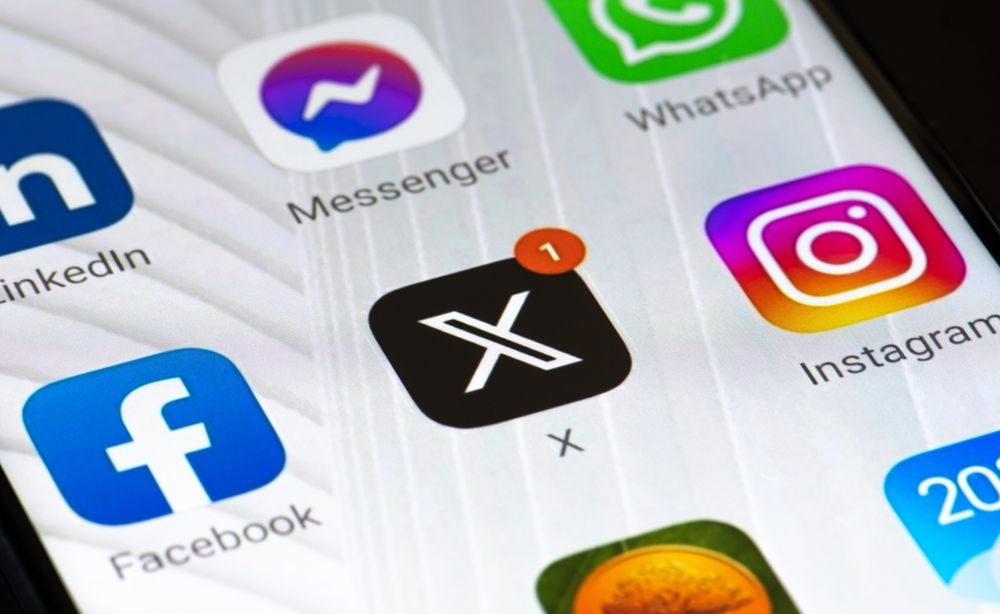
You’re trying to grow your business. You want to attract the right customers and build a lasting brand. It all circles back to one question: why is social media an important part of inbound marketing?
These days, customers don’t want to be hunted down by pushy sales tactics. Remember getting annoying cold calls during dinner? We’ve all been there, wishing for a more organic approach where customers find you. That’s what inbound marketing is all about. You should make sure you hire a digital marketing agency that can help with all of your inbound marketing and that is where SEO Locale can help.
One inbound marketing tactic we will be discussing today is social media marketing. This is where social media platforms step in as a powerful ally, helping you attract, engage, and delight potential customers throughout their buyer journey. Inbound marketing aims to attract your ideal audience by providing valuable and engaging content. Social media lets you create an approachable, “human” connection, inviting customers to your brand, instead of aggressively pursuing them. Think of it as creating a welcoming atmosphere where potential customers naturally gravitate toward you.
The Impact of Social Media on Brand Awareness
Think for a second about brands you love. I bet you follow them on at least one social media platform, right? It’s no surprise – research shows that eight in 10 consumers expect brands to be active on social media. Customers want to feel connected.
They expect brands to be present, engaging, and ready to address questions or concerns. Having an active social media presence shows you’re invested in building relationships, not just making a sale. A recent study shows that 76% of consumers are more likely to buy from businesses they feel connected to.
Going Viral: The Power of Word-of-Mouth Marketing
Think back to the last time you bought something based on a friend’s recommendation. Now, consider the impact of recommendations amplified on a global scale – that’s the magic of social media. Social media transforms regular people into brand ambassadors.
When your audience loves what you offer, they share it with their networks, sparking conversations and drawing in new customers. Research reveals that 92% of customers trust recommendations from friends and family more than other forms of advertising.
That organic reach and trust? That’s pure marketing gold. Especially considering that a whopping 3 billion people actively use Facebook each month. This widespread adoption makes social media marketing incredibly important when building your inbound marketing strategy.
How Social Media Elevates Inbound Marketing Efforts
Why is social media an important part of inbound marketing, you ask? It all comes down to building relationships. Let’s take a look.
Customer Relationships
Strong customer relationships are everything. Unlike the impersonal nature of traditional outbound marketing, social media thrives on connection. Social media gives you a direct line to chat with your customers, answer their questions in real time, and even show the “personality” behind your brand.
This connection is invaluable. Why? Because, 8 out of 10 customers expect brands to have a social media presence. Customers see it as a sign of availability and willingness to engage. Social platforms make gathering feedback on products or content effortless.
Understanding Your Audience and Intent
Social media is a treasure trove of information. Inbound marketing relies on tailoring content that resonates with your target audience’s interests. Imagine you sell handcrafted jewelry – by checking out trending hashtags and exploring what’s popular in DIY communities, you can gain market insights.
Observing competitors helps you learn what your audience finds valuable, helping you create highly-targeted social media marketing plans. Social media is an open invitation to get up close and personal with your ideal customers. Listen to their thoughts, and most importantly – create a connection that fosters long-term loyalty.
In essence, social media gives inbound marketing that human touch it needs to thrive in a digital world craving authenticity.
Content Distribution and Its Influence on Reach and Visibility
Creating amazing content is one thing; ensuring it reaches the right audience is where social media truly shines. Platforms like Facebook, Instagram, or Twitter act as megaphones. Social media facilitates and amplifies your content’s visibility and potential for engagement.
From Blog Posts to Conversions: Guiding the Customer Journey
Social media empowers businesses to lead customers through their buying journey smoothly. Sharing insightful blog posts, articles, or captivating visuals across platforms like Instagram or Pinterest captivates interest. These social media strategies are based on multiple layers of providing valuable resources.
From there, businesses strategically integrate calls to action that direct users to website landing pages. These landing pages are specifically designed for conversions.
Creating Content that Counts
Ever clicked on an interesting article or video shared by a friend? Sharing informative blog posts about your industry helps position you as an expert.
This kind of valuable content naturally attracts your ideal customers. Let’s dive into some ways to leverage different types of engaging content.
| Content Type | Description | Benefits |
|---|---|---|
| Informational Blog Posts | Dive deep into industry trends, offer insightful tips, and answer common customer questions. | Positions you as an authority in your field and attracts organic traffic through search engines. |
| Visually Engaging Content (Photos, Videos, Infographics) | Showcase products, share behind-the-scenes peeks, or repurpose written content visually. | Captures attention, makes information digestible, and encourages social sharing. |
| User-Generated Content (Reviews, Testimonials, Images) | Share authentic experiences from existing customers, showcasing product satisfaction and brand loyalty. | Builds trust and credibility through social proof, leveraging customer voices. |
| Engaging Stories | Connect with your audience through emotional storytelling, showcasing your brand’s personality and values. | Creates a relatable experience, builds community, and fosters lasting brand loyalty. |
Social Media and its Positive Effect on SEO
Think of your social media and your website as a power couple, working in perfect harmony to enhance your online visibility. Sharing content across platforms sends positive social signals to search engines, like Google. Increasing your SEO is another important inbound marketing tactic as they are high intent searches. Finding the right national SEO company can be difficult at times, but make sure the SEO agency you do find ranks themselves and aligns with your business goals.
Increased website traffic coupled with positive engagement through platforms like Instagram, Facebook, or Twitter tells search engines you’re delivering something worthwhile. When search engines notice a buzz around your content – be it shares, likes, or comments – they take note.
They start considering your website as a trustworthy source. This improves your search engine optimization and boosts your position in search results. Social media presence significantly impacts organically increasing your SEO.
Converting Interest into Action
Social media’s power extends beyond raising brand awareness. When done well, it subtly guides those casually browsing social media toward becoming loyal customers. Here’s how.
Targeted Ads and Generating Quality Leads
Most social media platforms offer powerful ad targeting options. For example, imagine you’ve just launched a line of organic teas. Instead of marketing to everyone, target your ideal tea-loving demographic with enticing visuals and ads.
Sharing customer testimonials and user-generated content showcasing happy customers builds trust and social proof. It shows potential buyers that they aren’t alone in loving your products, and gently nudges them from curious onlookers to confident customers. In fact, businesses using social media as a key part of their marketing generate a 100% higher lead-to-close rate than those stuck with old-school outbound strategies.
Harnessing User-Generated Content for Authenticity
Imagine discovering a new bakery because you stumbled upon mouthwatering pictures of their pastries on Instagram, shared by happy customers. Remember those handcrafted jewelry makers? They could create a branded hashtag encouraging customers to share pictures of themselves wearing those beautiful pieces.
Depop does just this, publishing featured product images from their sellers right on the app. The beauty lies in authenticity and the power of human connection.
Or take Calvin Klein, which invites users to post pictures of their products with the hashtag #MyCalvins. This not only showcases genuine enjoyment of the brand but also taps into that coveted ‘fear-of-missing-out’ sentiment, further fueling desire and potential purchases. User-generated content, when done authentically, humanizes your brand. This simple yet effective campaign proves that user-generated content isn’t just a buzzword; it’s about connecting authentically and showing, rather than telling, what makes your brand unique.
The Changing Landscape of Consumer Behavior
Why is social media an important part of inbound marketing? Consider that the average American spends over two hours each day on social media. Social media is where people connect, consume content, and get recommendations.
To remain competitive, businesses must go where the audience is – which today, undeniably includes the dynamic landscape of social media. Building an engaged online community around a brand goes a long way. Especially when statistics show the number of social media users is projected to reach 4.41 billion by 2025.
And don’t underestimate social media’s impact on businesses like law firms where personal branding is essential – one in four people won’t consider hiring a lawyer without a robust social media or web presence.
Staying Relevant in a Digital World
Just having an account on every social media platform won’t cut it, however. Social media moves at lightning speed – new media trends emerge daily, algorithms change frequently, and customer preferences constantly evolve. To effectively use social media for inbound marketing, remaining adaptable and responsive is key.
Consistently posting relevant and engaging content is crucial to avoid getting lost in today’s fast-paced online environment.
FAQs
Why is social media an important part of inbound marketing HubSpot quiz?
HubSpot’s inbound marketing quiz emphasizes the significance of social media. It’s a critical component in driving organic traffic, establishing thought leadership, nurturing leads, and ultimately achieving your marketing goals.
Why has social media become an important component of the marketing plan?
The ever-changing landscape of consumer behavior highlights why social media has become integral. With millions spending significant time online, connecting with peers, and seeking information, businesses now recognize these platforms as a space to build trust, showcase expertise, and authentically reach their target audiences.
How can media marketing help a firm with inbound marketing efforts?
Media marketing helps firms reach wider audiences and amplify content visibility organically, establishing brands as trustworthy sources within their respective niches. Consistent, high-quality content tailored towards customer interests encourages shares, interactions, and establishes a connection that attracts those actively seeking solutions your firm offers. It seamlessly guides those casually scrolling into potential customers.
Are social media ads inbound or outbound marketing?
While often viewed as interrupting the user experience like traditional outbound tactics, paid social media ads actually straddle both worlds. Why? When done strategically – meaning targeting a specific audience already interested in similar brands or content as yours – paid social media ads seamlessly fit within inbound efforts, gently inviting users already interested in similar offerings to explore your brand further.
Conclusion of Why is Social Media an Important Part of Inbound Marketing…
In a world flooded with information and endless marketing messages, why is social media an important part of inbound marketing? Simple – because it cuts through the noise and connects authentically.
Instead of bombarding with irrelevant ads, social media creates spaces where customers come to you – a key characteristic of inbound methodology. Social media creates communities, provides value through authentic connection, and makes those crucial touch points that lead to not just sales, but long-lasting, loyal customers who’ll happily share and recommend your brand with others. That right there is marketing magic that traditional outbound efforts simply cannot achieve. So go ahead, embrace the power of social media – the future of your brand might just depend on it.












